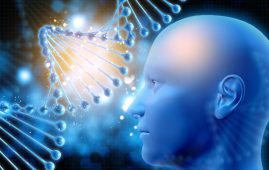

According to a new study by Ramya Ganesan of Emory University in the US and colleagues, a typical chemotherapy treatment damages nearby non-cancer cells, which can subsequently cause latent cancer cells to reawaken and encourage the growth of cancer. The discovery is crucial for comprehending cancer recurrence and could suggest crucial new prevention targets.
Chemotherapy advances have significantly decreased mortality rates for numerous cancer forms, including breast cancer. However, within the first five years, up to 23% of breast cancer patients have recurrence. All cancer cells should be killed by treatment, however occasionally certain cancer cells go into a dormant condition where they cease dividing and are resistant to chemotherapy. When latent cells reawaken and begin dividing once more, recurrence happens.
Although some research has suggested that chemotherapy may help cells come out of dormancy, the exact mechanism causing this impact is still unclear.
The authors used both a breast cancer animal model and a breast cancer cell model to investigate that subject. Importantly, the cell model featured connective tissue cells that are present in breast and other tissues as well as non-cancer stromal cells. They observed that even at extremely low dosages of the chemotherapeutic medication docetaxel, stromal cells were damaged but cancer cells were not, and that treatment led to cancer cells entering the cell cycle again.
The authors demonstrated that the injured stromal cells’ release of two important cell signaling molecules, granulocyte colony stimulating factor (G-CSF) and interleukin-6 (IL-6), which acted on the dormant cells to promote their growth both in vitro and in vivo, was the primary cause of this reawakening of dormant cells.
They demonstrated that antibodies that neutralized either G-CSF or IL-6, or a medication that stopped the mediator of those signals within cancer cells, prevented the awakening from dormancy caused by docetaxel treatment, which gave the scientists viable anti-cancer targets.
The consequences of these studies are quite significant. First, they emphasize how other cells outside the cancer cells themselves are crucial in deciding how well chemotherapy works. Second, they offer a plausible molecular explanation for the finding that high blood IL-6 concentrations are connected to an early recurrence in breast cancer patients following chemotherapy, which may increase the usefulness of that biomarker in treatment selection. Thirdly, they offer fresh targets for avoiding repetition.
Dr. Ganesan and Dr.Sukhatme add, “Our paper highlights a deleterious effect of cancer chemotherapy: release of stromal IL-6 and G-CSF by taxane chemotherapy awakened dormant breast cancer cells, a postulated mechanism for tumor relapse. Transient blockade of cytokine signaling during chemotherapy administration may prevent tumor recurrence.”
more recommended stories
 Caffeine and SIDS: A New Prevention Theory
Caffeine and SIDS: A New Prevention TheoryFor the first time in decades,.
 Microbial Metabolites Reveal Health Insights
Microbial Metabolites Reveal Health InsightsThe human body is not just.
 Reelin and Cocaine Addiction: A Breakthrough Study
Reelin and Cocaine Addiction: A Breakthrough StudyA groundbreaking study from the University.
 Preeclampsia and Stroke Risk: Long-Term Effects
Preeclampsia and Stroke Risk: Long-Term EffectsPreeclampsia (PE) – a hypertensive disorder.
 Statins and Depression: No Added Benefit
Statins and Depression: No Added BenefitWhat Are Statins Used For? Statins.
 Azithromycin Resistance Rises After Mass Treatment
Azithromycin Resistance Rises After Mass TreatmentMass drug administration (MDA) of azithromycin.
 Generative AI in Health Campaigns: A Game-Changer
Generative AI in Health Campaigns: A Game-ChangerMass media campaigns have long been.
 Molecular Stress in Aging Neurons Explained
Molecular Stress in Aging Neurons ExplainedAs the population ages, scientists are.
 Higher BMI and Hypothyroidism Risk Study
Higher BMI and Hypothyroidism Risk StudyA major longitudinal study from Canada.
 Therapeutic Plasma Exchange Reduces Biological Age
Therapeutic Plasma Exchange Reduces Biological AgeTherapeutic plasma exchange (TPE), especially when.

Leave a Comment